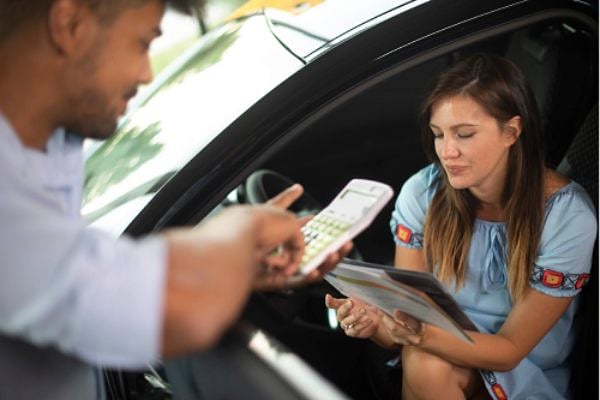Events Liability Insurance Checklist: What Every Event Organiser Should Consider
finance
When you're just getting started as an events planner, your work will likely focus on weddings and milestone celebrations. As your business grows, you'll start tackling bigger projects: festivals, conferences, and exhibitions. Events Liability Insurance is essential regardless of the scale of the event. From simple weddings with only a dozen or two guests to multi-day festivals with thousands of attendees. At Auto&General Insurance, we'd love to see you succeed, which is why we've put together this handy guide on drawing up your events liability checklist.
Why do you need an Events Liability Insurance checklist?
Following a significant setback during 2020 and 2021, South Africa’s events industry is back to hosting everything from intimate weddings and family celebrations to large corporate conferences and major festivals. The sector has shown remarkable resilience and growth, with the corporate events industry alone valued at approximately US$6.6 billion in 2023 1.
Meanwhile, the wedding planning market has also experienced rapid recovery and is projected to show a compound annual growth rate (CAGR) of 16.3% between 2024 and 2031 2.
With such a thriving and rapidly growing market, it's essential to ensure your events are fully protected against potential risks. Accidents, property damage, and unexpected cancellations can quickly turn a successful event into a financial burden.
A checklist contributes to comprehensive protection by ensuring you've addressed all potential risks and have adequate Liability Insurance for events. It allows you to concentrate on creating exceptional experiences rather than worrying about potential pitfalls. Whether you're hosting a corporate seminar, an intimate wedding, or a grand festival, having a clear and structured checklist in place is vital for safeguarding your event.
Of course, a checklist can't help you plan for all scenarios. The Keyshia Cole South African tour that was postponed in January 3 is a good example of this. This postponement wasn't the result of any local events, but rather because of the wildfires that destroyed properties around Los Angeles, including the home of Keyshia Cole. But simply anticipating the possibility of a cancellation or postponement would have ensured the organisers had adequate Event Cancellation Insurance.
Your comprehensive Events Liability Insurance checklist
Each event has unique risks. An Events Liability Insurance checklist ensures your insurance matches these risks, offering smooth event management and financial protection.
1. Define the scope of the event
Identify event type (e.g., corporate seminar, wedding, festival) by considering the number of attendees and event duration, since risk levels increase with a higher volume of guests and the longer an event lasts.
Next, look at where the event is being held. Large venues present higher risk, while outdoor venues could mean extra coverage against weather-related risks.
2. Determine essential coverage types
Your insurance policy should cover the risks most relevant to your event. There are some types of cover that would commonly be needed.
-
Public Liability Insurance: This is always needed as it protects you against third-party claims of bodily injury or property damage at the event.
-
Employer’s Liability Insurance: If you have permanent or temporary staff and volunteers helping to organise and work at the event, you need this cover. It protects you against claims for work-related injuries—and sometimes illnesses—affecting staff and volunteers.
-
Event Cancellation Insurance: There is always a risk that an event might need to be cancelled or postponed. Depending on the circumstances leading to the cancellation, this cover can protect you against financial losses.
-
Equipment Coverage: Although this cover is required when renting equipment, it insures both rented and owned event equipment against loss or damage.
-
Liquor Liability Insurance: Not always necessary, but essential if alcohol is being served to cover alcohol-related incidents.
For once-off events, Event Liability Insurance for one day is possible, with short-term Events Liability Cover available for up to six weeks.
3. Conduct a thorough risk assessment
Risk management is crucial. Check the venue for accessibility, safety compliance, and clearly identified emergency exits.
Identify high-risk activities, as many policies exclude coverage for such activities.
You should also assess attendee risks, including crowd control and first-aid requirements.
4. Review policy exclusions and limitations
Understanding what your insurance doesn’t cover is just as important as knowing what it does. Confirm whether your policy excludes high-risk or dangerous activities. Consider speaking to your insurer to confirm if any activities you have planned would be excluded.
Check exclusions for epidemics, pandemics, or infectious diseases, as COVID-19 highlighted this risk. Also, check for any other types of risk that might impact your event planning business.
For example, Sipho has organised an outdoor music festival, with a fireworks display planned for the end of the event. In addition, some performers intend to use stage pyrotechnics. Sipho needs to check his policy to see if traditional fireworks displays are covered. He also needs to consider whether the stage pyrotechnics could affect the Equipment Insurance included in his Liability Insurance for events.
5. Check venue and vendor requirements
Many venues and vendors have their own insurance requirements, and you should check that your own coverage meets these. Additionally, if your event includes outside vendors, such as food stalls, you should check that they have their own Liability Insurance.
For example, the venue your client has chosen for their wedding has a R2 million Public Liability Insurance requirement. They also ask to be listed as an additional insured party. If your Events Liability Cover has a R1 million limit, you will need to contact your insurer to increase your cover and to add an additional insured endorsement to your policy.
6. Set appropriate coverage limits
Match coverage limits to your event’s scale and risks, ensuring aggregate limits provide adequate total coverage across all claims within your policy period.
7. Ensure compliance with legal and regulatory standards
Verify that you have obtained all necessary permits, licences, or approvals for your event type. Any claims relating to your event could be affected if the event did not comply with all local laws and regulations.
8. Review and finalise the insurance policy
Before finalising your Events Liability Insurance, thoroughly review the terms, conditions, and exclusions of your policy. Speaking with your insurance advisor can help you confirm that your policy fully addresses the risks associated with your event.
This checklist can help you ensure that your event liability includes comprehensive protection, covering both expected and unexpected risks.
Get an Auto and General Insurance quote
The right policy and checklist can protect you from financial setbacks and legal headaches. Auto&General Insurance can tailor coverage to your event’s specific needs, whether you need event liability insurance for one day or an annual policy. Get in touch today for a personalised Auto and General Insurance quote and ensure your next event is fully protected.








